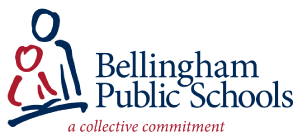The һ����app asks us to collectively commit to empower every child to discover and develop their passions, contribute to their community, and achieve a fulfilling and productive life. Progress reporting in Bellingham Public Schools is designed to encourage maximal development of each student’s potential. Grading and progress reporting are communication tools encouraging teachers and families to value the worth, uniqueness and complexity of the individual student. The use of these tools provides for a flow of information not only from teacher to the parent/guardian and student but for dialogue among the parties. Progress reporting includes periodic single written codes, such as a letter grade, and also provides for a variety of means of regular communication among parent/guardian, student and teacher.
Our grading policy communicates what we value as a school system, and therefore must reflect our core values, have clear purposes, clarify the qualities of effective practice and promote classroom practices that best allow us to live up to The Promise we have made to the children and families of Bellingham.
Values
Bellingham Public Schools believes that:
- The purpose of school is to facilitate the growth and development of every child.
- Our students are unique individuals who come to school with diverse backgrounds and experiences, and who learn in different ways and at different speeds.
- Grades should reflect each student’s growing knowledge, abilities and talents.
- Grades are a form of communication regarding student demonstration of learning. Assignments and other student work serve as an avenue for identifying demonstration of learning.
- Grades should provide opportunity and not unfairly limit a student’s future opportunities.
- Recovering and learning from failure teaches more than being labeled a failure.
- Our grading system must be inclusive, equitable and not preserve or reinforce existing inequities.
- Our grading system must acknowledge that learning and growth is an ongoing and complex process as students transition through childhood, adolescence, and early adulthood.
Purposes
Our grading policy reflects three purposes of grading:
- To document student progress
- To provide feedback to the student, family, teacher and support staff
- To inform instructional decisions
We reject the use of grades for other purposes, including to punish students or to sort students.
We support and encourage student involvement and reflection in the grading process.
Criteria for Success
Grading practices that meet our purposes and align with our values are accurate, bias-resistant
and motivational.
Accurate: grades must be based on methods that are sound, easy to understand and that correctly describe a student’s level of academic performance.
Bias-Resistant: grades should be based on valid evidence of a student’s content knowledge and skills, and not based on evidence that is likely to be altered by implicit bias or is unrelated to academic performance.
Motivational: the way we grade should motivate students to achieve academic success, support a growth mindset and give students opportunities for improvement. The way we grade should be so transparent and understandable that every student can know their grade at any time and know how to achieve the grades they desire. Equitable grading distinguishes and connects the learning process and academic success, using multiple forms of feedback of which only one part is a letter grade.
Course Grades
Grades will be determined for each course. Grading should clearly reflect a student’s growth in
learning as measured over time. Assessing learning means assessing student growth toward
grade-level or course-level learning standards. Grades will be determined by teachers and will
reflect the student’s learning. For high school, the district will comply with the grading/reporting
system incorporated into the statewide standardized high school transcript.
Parents/guardians will be provided with a report of student progress at the end of each reporting
period.
Parent/Guardian Conferences
Conferences may be requested by parents, guardians, students, teachers or administrators and
will be scheduled in a timely fashion.
Interim Progress Reports & Communication of Progress
An interim progress report will be provided to parent/guardian(s) and students for the specific
purpose of describing interim progress for students between grading periods.
In addition, the district will provide electronic access to student performance and grades for
secondary students to serve as a basis for monitoring student progress toward learning goals and
to provide information to improve student learning. Electronic reporting of student progress will
be updated on a timely and regular basis.
The superintendent will establish procedures to implement this policy.
| Cross References: | Content |
|---|---|
3520 – Student Fees, Fines and Charges 3122 – Excused and Unexcused Absences |
| Legal References: | Content |
|---|---|
RCW 28A.150.240(2)(g) Certificated teaching and administrative staff as accountable for classroom teaching — Scope — Responsibilities — Penalty |
| Management Resources: | Content |
|---|---|
Policy News, June 2021 Equity in our Schools |
